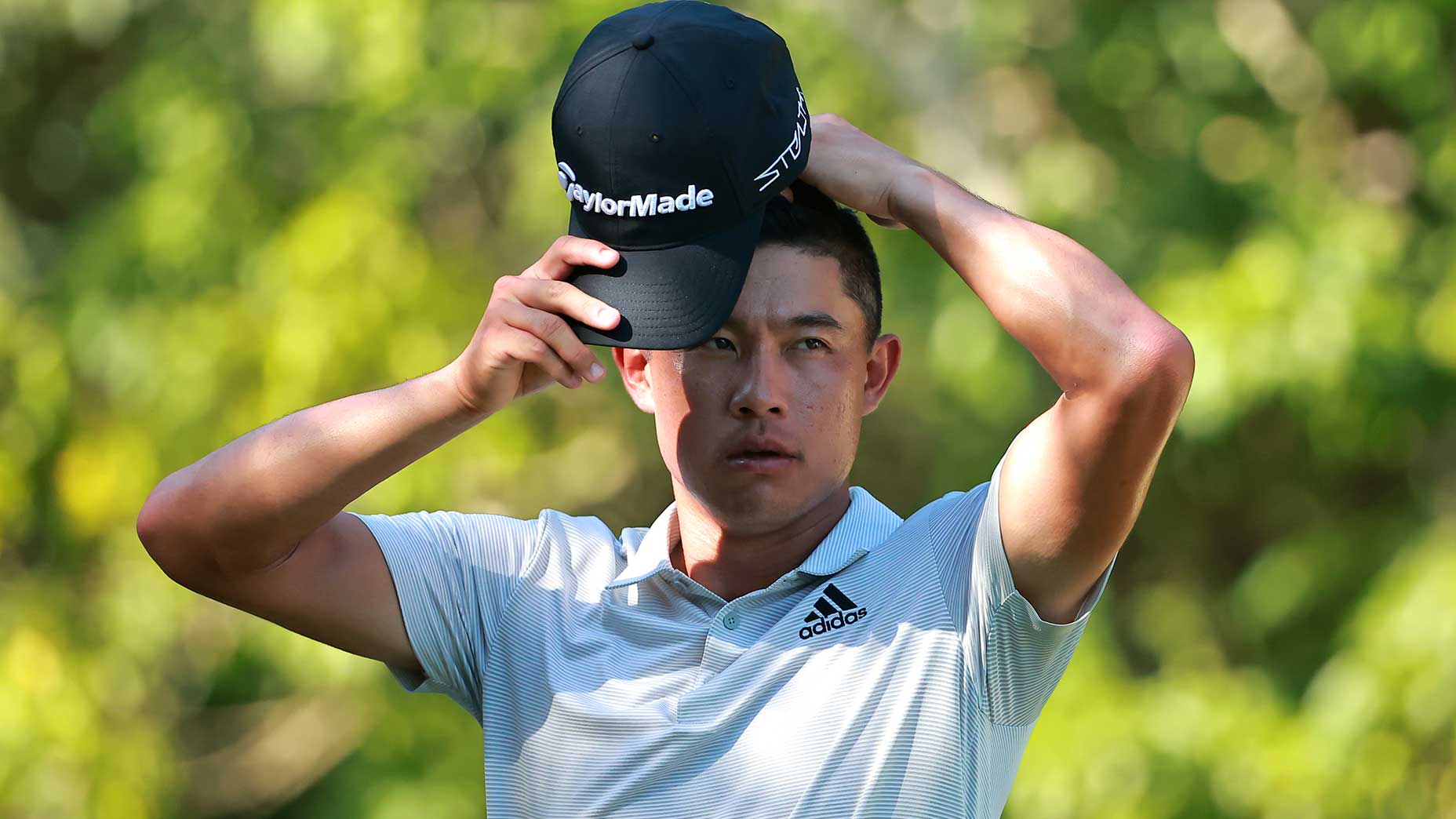Collin Morikawa didn’t appreciate an analyst’s seemingly innocent critique of his golf game, and he made it known. Was it simply a misunderstanding, or a complex issue that involves the stubbornness and competitiveness necessary to be one of the best golfers in the world?
It’s complicated. But first, let’s start at the beginning.
Morikawa blitzed the PGA Tour when he turned pro in 2019, recording three top 10s in just nine starts and winning the Barracuda Championship. He didn’t slow down the next year. He won twice more, grabbed his first major title (the PGA Championship) and backed that up with another two-win season in 2021, which again included a major title. His victory at the Open Championship gave him two majors in just eight starts.
His win at Royal St George’s put him among historic company, too. He tied Bobby Jones with the fewest major starts needed to win twice, and he became the first player to win two different major debuts.
Through it all, he’s risen as high as No. 2 in the world. And despite a winless 2022 (he did finish second twice), he still had eight top 10s and ranked 9th in the world. But the frustration has been evident. On Tuesday at the World Wide Technology Championship at Mayakoba, Morikawa said he’s been “searching” for answers regarding last season.
“Ever since I made the trip out to Dubai and played the DP World and played Abu Dhabi, Dubai earlier in the year [in January], things just never felt good,” Morikawa, 25, said. “Just kind of was searching for that game, searching for just kind of a normal.”
That brings us to Saturday at Mayakoba, after Morikawa finished a third-round 68. That’s when Golf Channel’s Todd Lewis asked Morikawa about trying to match the massive success he had early in his career. He told Morikawa he wanted to ask him something that his colleague, analyst Trevor Immelman, had said, how Immelman explained Morikawa was so good early on, he’s made it almost impossible to continue that success.
“Possibly that was your bar, your standard,” Lewis said (you can watch the clip here). “Did you go through that?”
“Wow, that’s hard to hear from him. Yeah, I could care less what he says there, ’cause I don’t think that’s my bar,” Morikawa said. “I think I have got so much more to improve. I have been near last on putting; I don’t think I have even finished close to being average in putting, and if I just get my putting to be average I think there is so much more to improve. I don’t know. I don’t know where that came from, but it kind of stings there. I don’t like to hear that.”
Lewis quickly clarified that Immelman meant it as a compliment. (And Immelman later reiterated that himself.)
“I don’t know if that was a compliment; I’ll be honest,” Morikawa said. “If he did, maybe it came off wrong from what I heard. For me, I just have never seen a ceiling. I want to keep improving. Obviously, we took a couple of steps back this year, but it’s just trying to get better every day and improve on little things. I expect myself to play well, I set really high goals for myself. It just sucks when they don’t come through.”
This two-minute clip is interesting for several reasons.
Did Morikawa really take offense to Immelman’s compliment? He had the chance to backtrack after Lewis clarified Immeleman’s intentions, but he didn’t waver.
As a reminder: Morikawa won two of his first eight major appearances (25 percent winning percentage) and five of his first 49 PGA Tour starts (10.2 percent) — two staggering percentages — and still said “I don’t think that’s my bar.”
It provides a glimpse into the unique psyche of a top-level athlete in their sport. Based on this interview, Morikawa is basically admitting his epic run to start his career was not the best he can be. To others, it was a compliment. To him, it was a slight.
This all reveals much about Morikawa and his quest to be great. It’s all relative. And no, it doesn’t have to make sense to everyone.
Let’s go back to Tuesday and that pre-round interview. That sheds even more light on Morikawa’s mindset.
“The problem is when I search is like I search for perfection, right?” Morikawa said. “We’re not just searching for the ball to just kind of do something all right, but when you’re playing well, like all you want to do is just kind of push it up there, you know it’s going to get in the hole and you’re going to make birdies. It was a lot more stressful this year. I’ve just been kind of trying to figure out what was wrong when it was simply just kind of a body thing and just the way my body was moving. Unfortunately, it took seven, eight months throughout the year to at least find that, but that’s on me.
“Everything is on me just to know what’s going on,” he continued. “I’ve got a great team around me, but that’s the best thing is that, you know, I still have to be aware of what I’m doing. I just wasn’t kind of being able to make sure everything was where I wanted it to be. It’s a grind, but that’s what’s great. Even though we are kind of heading towards this offseason, this fall area, I’m putting a lot of pieces together and putting a lot of work in to make sure ’23 is going to be as best as ever.”
Success? All relative.
